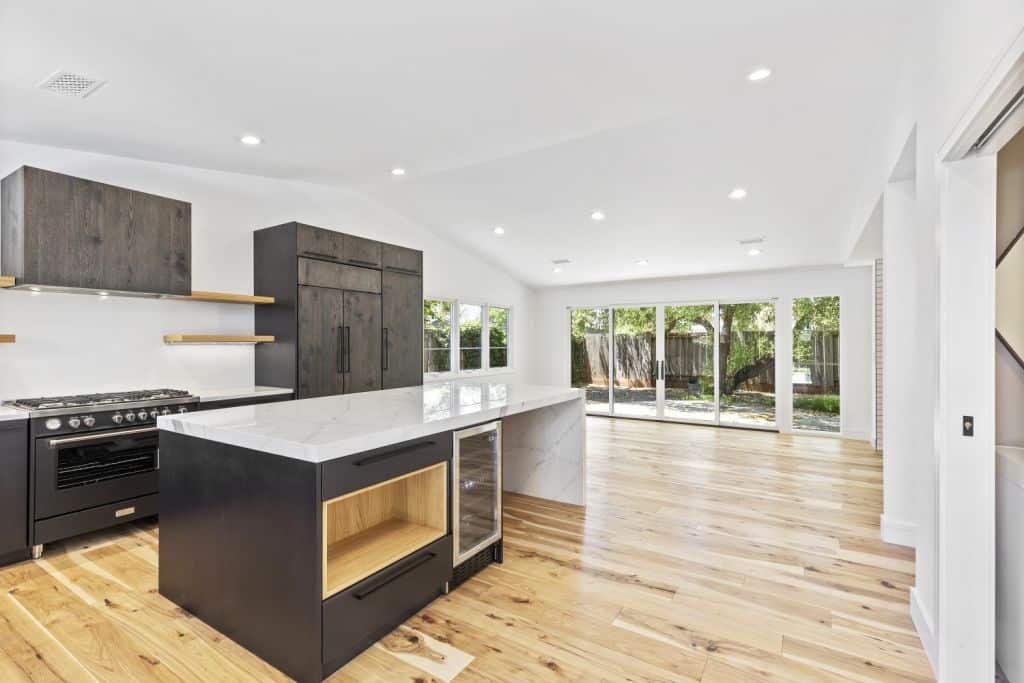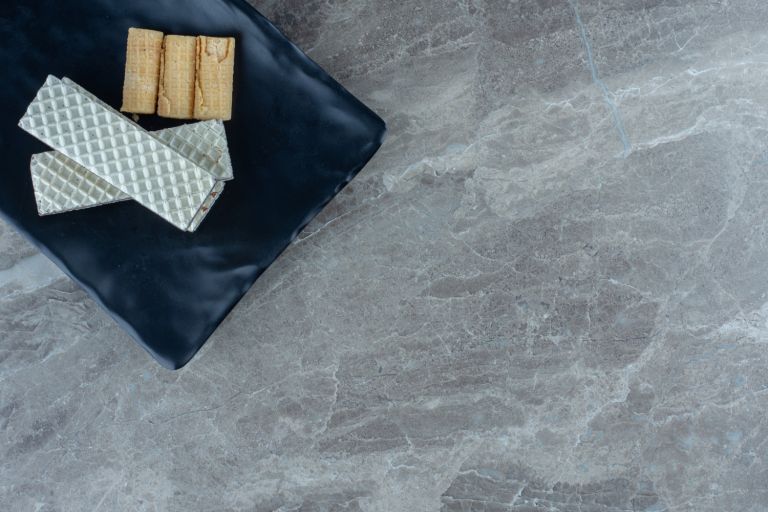Designing a kitchen involves numerous decisions, one of the most crucial being the selection of countertop dimensions. The right measurements not only ensure functionality but also enhance the aesthetic appeal of your kitchen space. Here, we delve into the key aspects of countertop measurements – width, depth, and thickness – and discuss how these dimensions influence your kitchen’s design and usability.
Understanding Standard Counter Width
- Standard Width Dimensions: The standard width of kitchen countertops typically ranges from 25 to 26 inches, measured from the wall to the counter’s front edge. This width provides ample space for most kitchen tasks and fits standard cabinet depths, allowing for a slight countertop overhang.
- Island Countertop Measurements: For kitchen islands, the standard width is usually between 25 and 25.5 inches, although some island bases can support countertops up to 48 inches for additional workspace
Countertop Depth: Balancing Space and Functionality
Standard Depth Range: The depth of kitchen countertops generally ranges from 24 to 25 inches, measured from the counter’s back to the front edge. This depth accommodates most appliances and provides sufficient space for food preparation and other kitchen tasks
Countertop Height: Comfort and Accessibility
Standard Height: Kitchen counters typically have a standard height of 36 inches from the floor to the countertop’s top, ideal for comfortable food preparation and appliance access. However, adjustments may be needed for individuals of different heights or those with mobility issues
Customizing Your Countertop Dimensions
Personalized Measurements: While standard dimensions are common, countertops can be customized to fit specific needs and preferences. Non-standard widths and depths can accommodate unique kitchen layouts, large appliances, or personal preferences for additional workspace
Material and Thickness: A Key Determinant
Impact of Material and Thickness: The material and thickness of your countertop can significantly affect its overall dimensions. Different materials like granite, quartz, or laminate can impact the dimensions. Thicker countertops may require additional support or wider cabinets, while thinner materials may need less.
Standard Thickness Measurements: Countertops typically come in three standard thickness measurements – 1, 2, and 3 centimeters. A thickness of three centimeters is often preferred by most fabricators, designers, and architects due to its durability, size flexibility, and color options
Overhangs and Edge Styles: The Finishing Touches
Counter Overhangs: Standard overhangs of 1 to 1.5 inches are usually included in the countertop’s overall width, offering a comfortable grip and protecting the cabinets below. This overhang also helps prevent spills and crumbs from falling into drawers or onto the floor
Edge Style Influence: Edge styles like square, bullnose, ogee, and waterfall can influence the overall dimensions and appearance of countertops. The choice of edge style can impact the countertop’s overall width and depth, making it essential to discuss this aspect with your countertop fabricator
Conclusion: A Balanced Approach to Countertop Measurements
Selecting the right countertop dimensions is a balance between standard measurements and personalized needs. It’s essential to consider the standard dimensions as a starting point and then tailor them to your specific requirements, keeping in mind the material, thickness, overhangs, and edge styles. A well-measured countertop not only enhances the functionality of your kitchen but also contributes significantly to its overall aesthetic appeal. Remember, the best countertop for your kitchen is one that fits your space perfectly, accommodates your daily tasks comfortably, and reflects your personal style.






